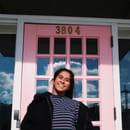Consider an intersection, such as Laclede and Vandeventer. People are engaged in all sorts of activities: applying makeup, consuming Doritos, head-banging to Metallica, or—god forbid—someone like my father who is actually paying attention to the traffic at hand. From the outside it may look chaotic, but in truth, in a traffic intersection is an exercise in order. Underneath the order is a virtue that both individuals and entire nations strive to cultivate. This virtue is trust. At the intersection, it’s trust that lets us know that our fellow drivers will stop at a red light. It’s trust that allows us to walk across the street knowing that all will recognize a pedestrian’s right of way. It’s trust that lets us believe in the general goodness of everyone involved at an intersection.
Sadly, trust has met notable challenges in recent times. Hopefully, through this article, I can establish that trust as we know it is under threat. A discussion of trust may seem wispy and abstract and even hard to accept, but perhaps the best approach to this can be found in an African proverb, which states that the “best way to find out if you can trust me is to, well, trust me.”
In short, trust is in decline. Researcher and professor at the University of Oxford, Rachel Botsman, identifies this broken trust as institutional trust. This refers to the trust we have in philanthropic organizations like the Salvation Army and in political organizations, like our government. One example of this decline in institutional trust can be seen in the Red Cross and its response to the 2013 Haitian Earthquake. The charity claimed they were using donations to build homes for 130,000 people, but the number of permanent homes actually built only housed six families. In analyzing this broken traditional trust, Botsman recognizes three fundamental reasons: lack of accountability, people in power keeping things hidden, and the fact that those people in power don’t get in trouble. This undermines our confidence in institutions and ends up pitting news against fake news, the legitimate against the illegitimate, and the valid against the invalid. The notion that our trust in the “man” is becoming shaky is hardly new, but what’s scary is the depth and some of the new shapes this distrust is taking.
The erosion of trust in the most common sense is making us rely on a new and strange form of the virtue, called distributed trust. Central to this form is technology, which allows trust to flow between people through networks. This inversion of trust from an arrangement that exists between two real people to an arrangement that exists between two virtual or digital people has, on the on one hand, democratized trust, but, on the other hand, has homogenized trust. In other words, the trust we have for our 314 Facebook friends isn’t really the same and may be inferior to the trust we share with real people in our lives. We trust robots, algorithms, and reviews that we find on Yelp. But we can’t seem to believe the human being standing right in front of us. Botsman tells a personal story in her interview, in which her own daughter greeted their family bot, Amazon Alexa, before she greeted her. What’s even scarier is that by day three, the robot was even putting together outfits for her daughter.
In the business arena, technology reduces the unknown about a stranger and allows people to get just enough information to make a trust leap. An example of this is Uber, which dispatches someone completely unfamiliar to us to come pick us up in his or her car and deliver us to our destination—a dramatic demonstration of trust considering all we really know about our driver is a name and a car model. Similarly, trust in technology is ruining our relationships because it offers the capacity for and the illusionary need of constant surveillance through apps like Find my Friends and the Snapchat map feature, which reveal a person’s location or, perhaps more importantly, reveal an unhealthy lack of trust. It appears as if we aren’t realizing that knowing where a person is isn’t the same as knowing where a person’s heart is.
And, honestly, if we can believe and trust that each of us is going to stop at that red light in this suburban intersection, which many of us do daily, I believe it shouldn’t be that difficult to create trust on other affairs.
Really, we have to trust that trust is important. I know I do, and I’m really hoping to trust in all of you, down the road at the intersection of Laclede and Vandeventer.


